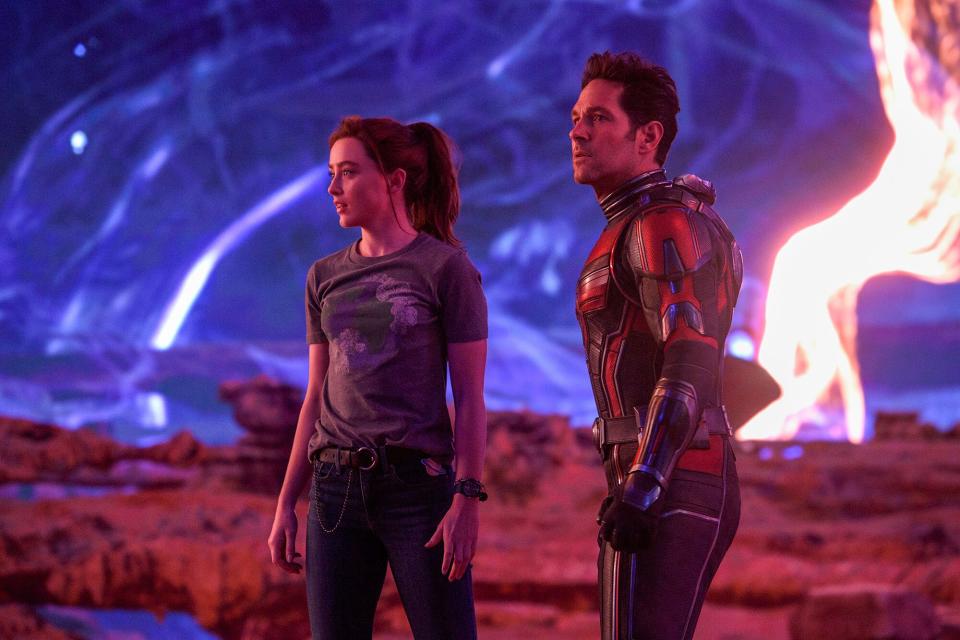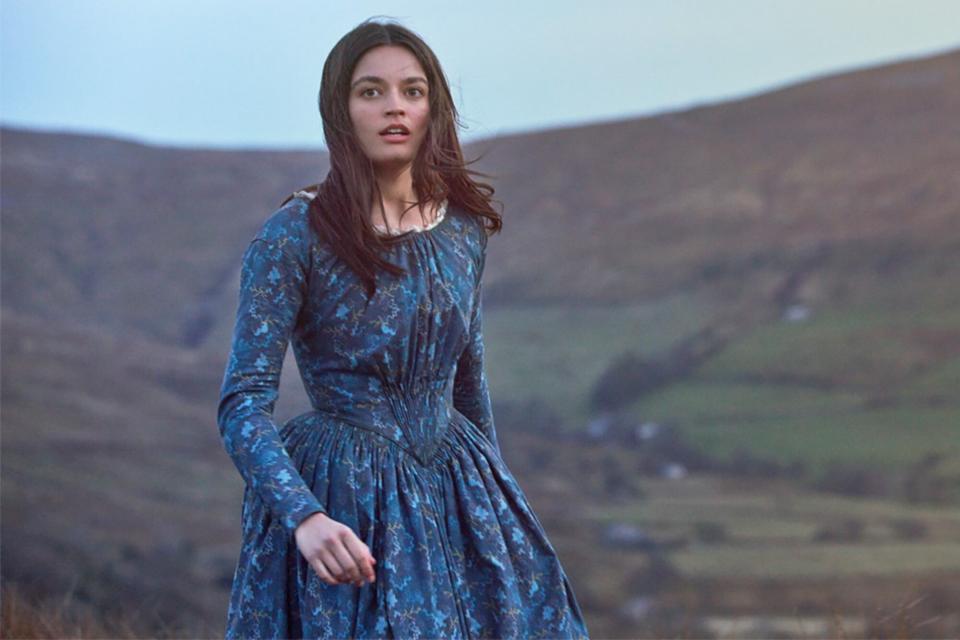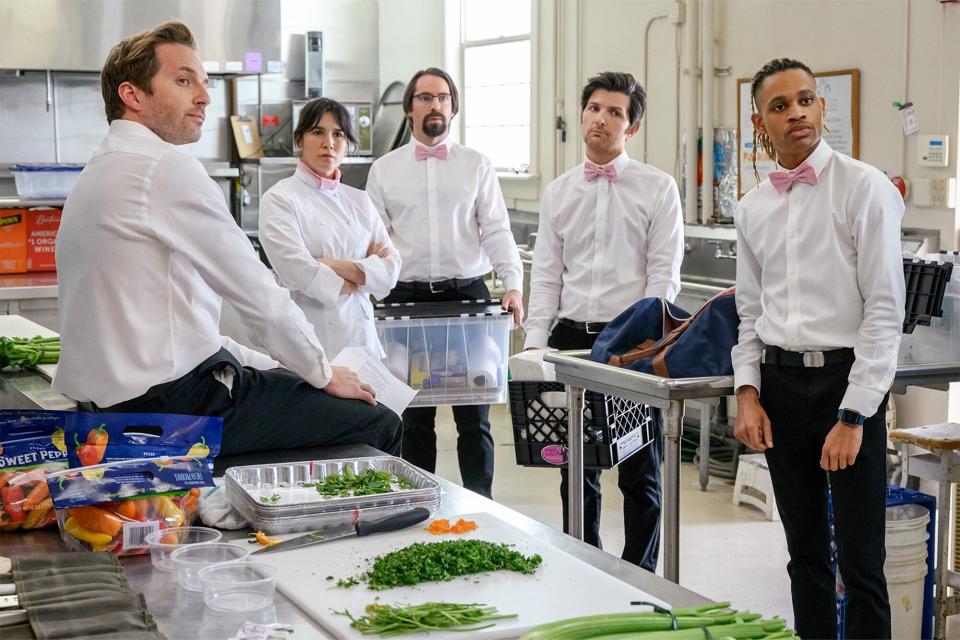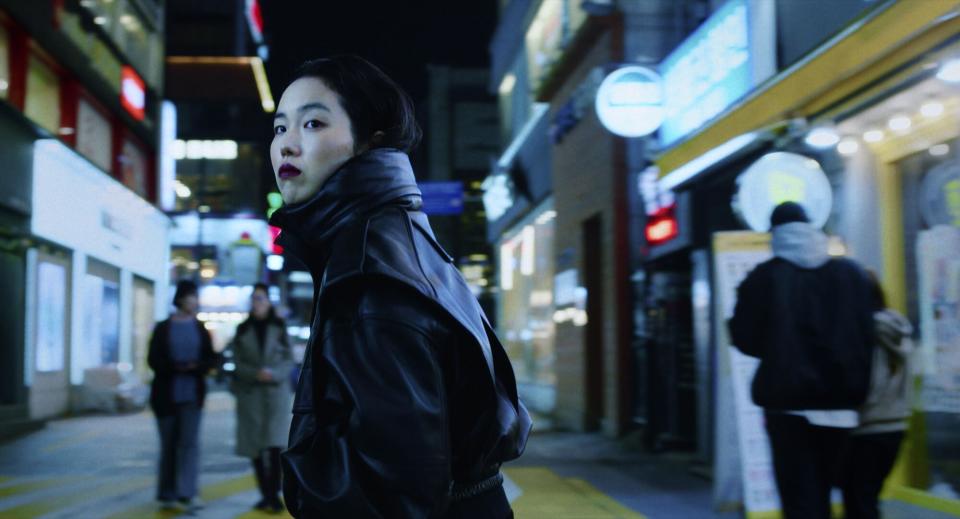Musts and Misses: What to see (and skip) this week
- Oops!Something went wrong.Please try again later.
- Oops!Something went wrong.Please try again later.
- Oops!Something went wrong.Please try again later.
- Oops!Something went wrong.Please try again later.
- Oops!Something went wrong.Please try again later.
- Oops!Something went wrong.Please try again later.
- Oops!Something went wrong.Please try again later.
- Oops!Something went wrong.Please try again later.
Ant-Man and the Wasp: Quantumania
(In theaters now)

Jay Maidment/Marvel Studios
He is the mini of the multiverse, the littlest man on MCU's campus. And a lot of Ant-Man's charm when the character first debuted in his own standalone movie in 2015 was in fact the human scale of the story: a blithe, goofy comedy that just happened to have superhero stuff in it (and of course, the deathless dimples of Paul Rudd).
Director Peyton Reed's antic 2018 followup, Ant-Man and the Wasp, went bigger and busier — and ultimately duller, as sequels do. Both the trailer and the subtitle of the third installment, Quantumania, pretty much give the game away: Small has gone psychedelic, a flamboyant alloy of analog Old Hollywood (Bill Murray, Michelle Pfeiffer, Michael Douglas), Marvel IP, and clamoring cosmic razzle dazzle.
Rudd's Scott Lang, mellowing into superhero middle-age, still has his faithful longtime girlfriend, Hope (Evangeline Lilly), a.k.a. the Wasp, and a now-teenage daughter, Cassie (Blockers' Kathyrn Newton); even his would-be in-laws, the mad scientists Hank and Janet (Douglas and Pfeiffer) have settled into mellow domesticity. But when light beams and subatomic things go awry, all five are sucked into the Quantum Realm, and microverse chaos begins.
What they find there is a whole tiny cosmos, a sprawling Star Wars cantina of extraterrestrial spheres and species. And Jonathan Majors' Kang the Conquerer is the villain they all quickly learn to fear: a tragic Shakespearian figure bent on total domination or barring that, annihilation. Returning director Peyton Reed sometimes get swallowed by the whirling spectacle of it all, a movie Gravitron shooting off wry one-liners, clangorous CG fight scenes, and shameless sentiment in equal, if hectic, measure. At just over 120 minutes, though — a blink in Marvel time — this Ant-Man is still clever enough to be fun, and wise enough not overstay its welcome. Grade: B —Leah Greenblatt
Emily
(In limited release now, nationwide Feb. 24)

Everett Collection
Emily Brönte was born into Victorian obscurity, published one mad Gothic masterpiece at 29, and then promptly died, unmarried and by most accounts of her cloistered world, probably unkissed. At least those are the bare facts of her scant biography, though it is not at all the one that writer-director Frances O'Connor conjures in Emily, a fevered reimagining of the woman whose immortal Wuthering Heights was, in this freewheeling portrayal at least, less of a bodice ripper than her own life.
An Emily who takes opium, spontaneously tattoos herself, and gets ravaged by handsome vicars in stone cottages would no doubt give any respectable Brönte scholar the vapors. It helps that O'Connor, herself a former actress (Mansfield Park, A.I.) has cast Emma Mackey, the erstwhile Anglo-French star of Netflix's Sex Education, in the title role — a vivid screen presence whose fine-boned beauty and fierce intelligence do a lot to sell her unlikely transformation from shy spinster to sex goddess of the moors.
Mackey's Emily is still in some ways the shy and inward girl of record, but she's also ferociously stubborn and full of wild imagination — "the strange one" of her two sisters, the equally literary Anne (Amelia Gething) and Charlotte (Alexandra Dowling), who would herself famously go on to write Jane Eyre. There's also a stern widower father (Adrian Dunbar), a tender-hearted wastrel brother (Dunkirk's Fionn Whitehead), and the aforementioned hot priest (Oliver Jackson-Cohen), who lights a fire in both Emily's mind and her loins.
Without plunging into full anachronism, the film happily plays both fast and loose with history, its tone frequently wobbling between melodrama, magic realism, and the more traditional structures of classic period drama. (The creative process, too, generally gets short shrift, beyond a few long gazes out a window with a quill pen.) Still, there's something gently intoxicating about O'Connor's dreamlike pastoral settings — oh, those wily, windy moors! — and her determination not just to rewrite Emily, but set her free. Grade: B —Leah Greenblatt
Party Down
(Premiering Feb 24 on Starz)

Colleen Hayes/Starz 'Party Down'
One of the great workplace sitcoms returns funny enough and peppier than it should be. More than a decade after the season 2 finale, doofus actor-model Kyle (Ryan Hansen) hires his former boss Ron (Ken Marino) to throw a celebration of his new Hollywood success, and invites old coworkers like Henry (Adam Scott), Constance (Jane Lynch), and Lydia (Megan Mullaly). Dour writer Roman (Martin Starr) still works for Ron, and other characters soon make their way back to the catering-catastrophe world.
The pink bowties haven't changed, but midlife weariness powers this revival. Roman still carries himself like an undiscovered genius, older and grayer. Ron is now a business owner (yay!) who smells like he lives in a van (he does.) "This is not how I envisioned my 40s," Henry admits, in that deadpan-sweet way Adam Scott way, like he's walking around with an invisible sitcom audience going awwwwww.
And Constance and Lydia are still kooky and fun, because they are Jane Lynch and Megan Mullally. Wedging everybody in requires narrative gesticulation. There are new characters played by Tyrel Jackson Williams and Zoë Chao; I haven't even mentioned Jennifer Garner as a movie producer who just sort of keeps on appearing at multiple parties for steadily less logical reasons.
But the episodic structure still sings, with each event becoming a different screwball one-act. James Marsden has a blast as a big-time actor whose surprise birthday goes awry. Nick Offerman confirms himself as a guest-star ninja in a smirky-weirdo role that requires multiple (solid!) Hitler jokes. The new Party Down is a bit too glossy, but it suceeds as a genial get-together for great comedy talents. Grade: B —Darren Franich
Read EW's full Party Down review here
Return to Seoul
(In theaters now)

Thomas Favel/Aurora Films /VANDERTASTIC/FRAKAS PRODUCTIONS/SONY Pictures Classics.
"I could wipe you from my life with a snap of my fingers," spits Freddie, the Korean-born but French-raised main character of writer-director Davy Chou's alternately playful and seething drama. Being wiped away is what happened to her as baby when she was put up for adoption, and to say that her unlucky boyfriend bears the brunt of some serious abandonment issues would be an understatement. Freddie, as played with deft, punkish attitude by the delightful find Park Ji-Min, pinballs through the movie, mostly with a sense of recklessness. She jets to Seoul on a whim, throws down soju in a bar like it's water, hooks up with a random guy (but can't remember the sex, so they do it again in the morning), and, just as impulsively, connects with the adoption agency that oversaw her extraction from a young couple unready for a family.
Return to Seoul, in its colorful, Godardian way, then becomes a quest movie, but not the one you're expecting — it's the opposite of sentimental or overly therapized. Freddie, for her part, doesn't seem headed for a breakthrough so much as a series of comically awkward exchanges, all of which need to be translated for her because she speaks no Korean (her detachment from the culture is something she wears like a badge). All these years later, her birth father is still wracked with guilt over giving her up; she takes the opportunity to remind him that she's French and will not be moving "back home" with his new family. Her translator does what she can to smooth out these responses into politeness, but in a revealing moment, calls her a "sad person."
And still, at least from our perspective looking in, there's a finely wrought trajectory to Freddie's life, one that wobbles like a bumblebee but not without an overarching sense of compassion, as director Chou skips years ahead into different haircuts, moods, and career choices (charmingly, Park turns up as an arms dealer and missile salesperson in one, preserving "peace, in theory"). The strength of the movie is its unresolvedness, which will be a test to viewers requiring closure. But Freddie is on her own wavelength — sight-reading, she calls it — and by film's end, she is still ably pecking her way through Bach on a hotel's piano, improvising a life robustly lived, and, during the span while we watch it, one of the year's more refreshing surprises. Grade: A– —Joshua Rothkopf
Related content:

